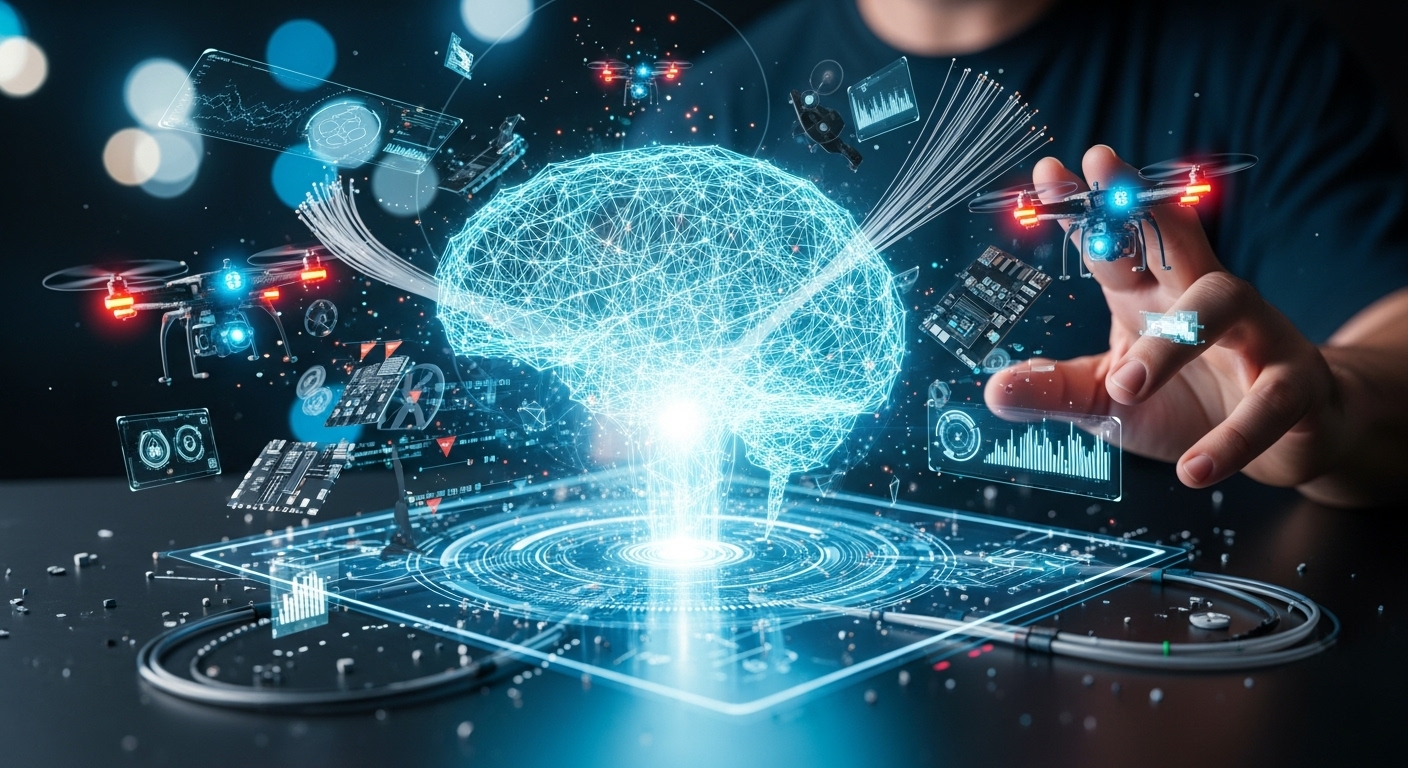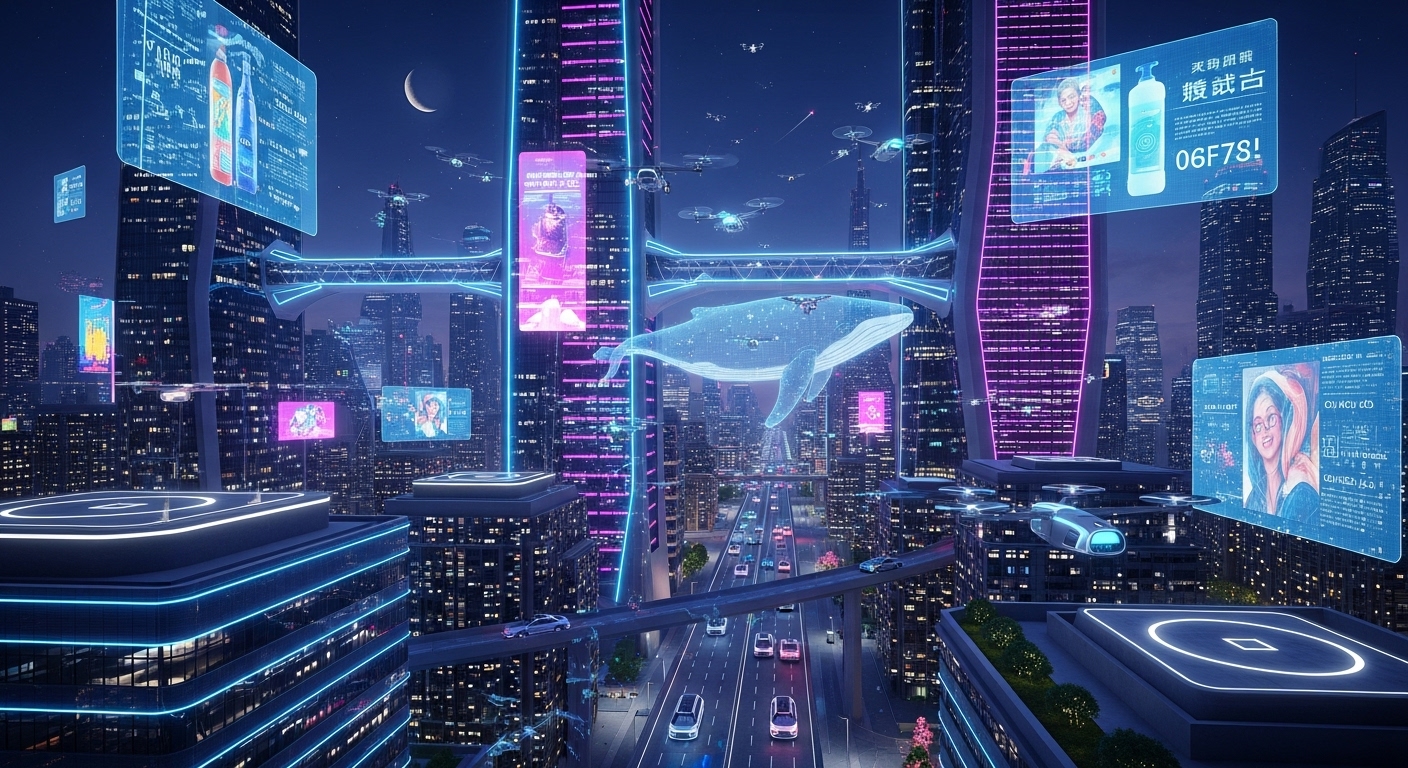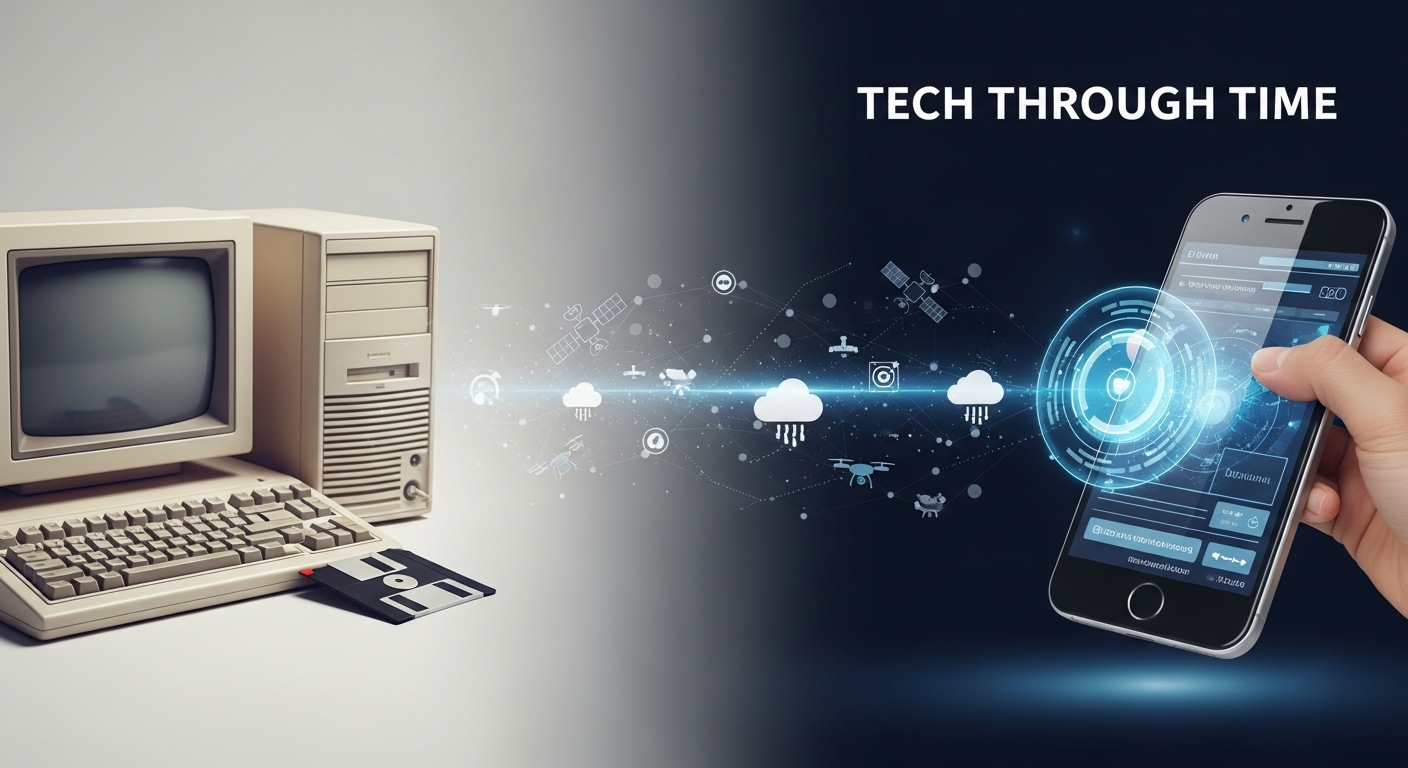The future of technology has long been a subject of intrigue, speculation, and excitement. Over the past few decades, we’ve witnessed a rapid transformation in the way we live, work, and communicate. From the first personal computers to the rise of smartphones, technology has consistently altered our daily lives in profound ways. But perhaps no developments are as exciting and transformative as artificial intelligence (AI) and automation. These two technologies are not only enhancing the way we work, but they’re also creating entirely new industries, shifting job markets, and influencing the future of human interaction with machines.
In this blog post, we will explore the current state of AI and automation, their potential impact on different sectors, and what the future may hold. From self-driving cars to AI-powered healthcare, let’s take a deep dive into the exciting possibilities ahead.
Understanding AI and Automation
Before diving into the specifics of AI and automation, it’s essential to understand what these terms mean and how they differ.
What is Artificial Intelligence (AI)?
At its core, artificial intelligence refers to machines or software that can perform tasks that typically require human intelligence. These tasks might include problem-solving, understanding natural language, recognizing patterns, or making decisions. AI systems can learn from experience and adapt their behavior, mimicking human cognitive functions like perception, reasoning, and decision-making.
There are various types of AI, with the most common being:
- Narrow AI: This type of AI is designed to perform a specific task, such as playing chess, recognizing speech, or filtering spam emails. It is the most common form of AI in use today.
- General AI: A more advanced form of AI, general AI is capable of performing any intellectual task that a human can do. This type of AI is still largely theoretical and has not yet been achieved.
- Superintelligent AI: This refers to an AI system that surpasses human intelligence across virtually all fields. While superintelligent AI is still a concept, it raises significant concerns regarding its potential implications on society.
What is Automation?
Automation, on the other hand, refers to the use of technology to perform tasks that were previously done by humans. Automation is commonly associated with manufacturing industries, where machines take over repetitive, time-consuming, or dangerous tasks. However, automation extends far beyond factory floors and is now being applied in various domains, including customer service, agriculture, logistics, and even healthcare.
The primary goal of automation is to increase efficiency, reduce human error, and free up people to focus on more creative or complex tasks.
The Role of AI and Automation in Various Sectors
Now that we have a basic understanding of AI and automation, let’s explore their impact across different sectors. These technologies are transforming industries in ways that were once thought impossible, and their potential seems limitless.
AI and Automation in Healthcare
One of the most promising areas where AI and automation are making a significant impact is healthcare. From early disease detection to robotic surgeries, these technologies are enhancing the capabilities of medical professionals and improving patient outcomes.
AI-Powered Diagnostics
AI has already begun revolutionizing the way diseases are diagnosed. For example, AI algorithms can analyze medical images, such as X-rays or MRIs, to detect early signs of cancer or other health conditions that may be difficult for human doctors to spot. In some cases, AI has been shown to outperform human doctors in terms of diagnostic accuracy.
Moreover, AI is also being used to analyze large datasets, including electronic health records, to predict health trends and recommend personalized treatment plans.
Robotic Surgery and Automation
Robotic surgery, powered by automation and AI, is another area where the healthcare industry is seeing advancements. Robots can now assist surgeons with precision during surgeries, minimizing the risk of human error. These robotic systems can also work tirelessly for extended periods, reducing the physical toll on human surgeons and allowing them to perform more surgeries in a day.
AI and Automation in Transportation
Transportation is another field undergoing rapid transformation due to the convergence of AI and automation.
Self-Driving Cars
Perhaps the most well-known application of AI in transportation is autonomous vehicles. Self-driving cars use a combination of AI, machine learning, sensors, and cameras to navigate and make decisions on the road without human intervention.
While there are still challenges to overcome, such as regulatory hurdles and public trust, autonomous vehicles have the potential to reduce accidents caused by human error, improve traffic flow, and reduce emissions. In the future, we may see entire fleets of self-driving cars operating in urban centers, making transportation safer and more efficient.
Automated Logistics and Delivery
AI and automation are also transforming the logistics and delivery industries. Companies like Amazon have already begun using robots in their warehouses to automate the process of picking and packing goods. These robots can work around the clock, increasing efficiency and reducing labor costs.
Additionally, drones are being used to deliver small packages to customers, eliminating the need for delivery trucks and reducing the time it takes to receive a product.
AI and Automation in Finance
The financial sector has also been significantly impacted by AI and automation. Banks, insurance companies, and investment firms are increasingly relying on AI to improve decision-making, reduce risk, and streamline operations.
Algorithmic Trading
AI-powered algorithms are used extensively in the stock market for algorithmic trading. These algorithms can analyze massive amounts of market data in real-time, identifying patterns and executing trades at a speed that would be impossible for a human trader to replicate. This has led to more efficient and accurate trading, but it has also raised concerns about market volatility and the role of AI in shaping financial markets.
Risk Management and Fraud Detection
AI is also improving risk management and fraud detection in the financial industry. By analyzing customer behavior and transaction patterns, AI systems can quickly identify fraudulent activity and alert authorities. These systems are also used to assess credit risk and determine loan eligibility, making the lending process more efficient and less prone to human error.
AI and Automation in Retail
The retail industry has been transformed by AI and automation, especially with the rise of e-commerce. Companies are using AI to enhance customer experiences, streamline operations, and improve inventory management.
Personalized Shopping Experiences
AI is playing a central role in personalizing the shopping experience for customers. By analyzing browsing history, purchase patterns, and social media activity, AI algorithms can recommend products that are most likely to appeal to individual customers. This not only improves customer satisfaction but also increases sales and customer loyalty.
Automated Warehouses
Many retailers, particularly in the e-commerce space, are using automation to optimize their warehouses. Robots can now efficiently pick and pack products, reducing the time it takes to fulfill orders. This is particularly important for companies like Amazon, where speed is a critical factor in maintaining customer satisfaction.
AI and Automation in Education
The education sector is also beginning to embrace AI and automation. From personalized learning to automated administrative tasks, these technologies are transforming how students learn and how schools operate.
Personalized Learning
AI can be used to create personalized learning experiences for students. By analyzing data on a student’s progress, AI-powered platforms can adjust the curriculum to suit the student’s needs, providing additional support in areas where they are struggling and accelerating progress in areas where they excel.
Automating Administrative Tasks
In schools and universities, administrative tasks such as grading, scheduling, and record-keeping can be time-consuming. AI and automation can help streamline these processes, freeing up educators to focus on teaching rather than paperwork.
The Future of Work: How AI and Automation Will Change Jobs
One of the most significant concerns surrounding AI and automation is their impact on the workforce. As machines and algorithms take over more tasks, there are fears that many jobs will be lost, leading to widespread unemployment.
However, experts believe that AI and automation will not lead to mass job displacement but rather to the creation of new job categories. Just as the advent of the internet led to new industries and jobs that didn’t exist before, the rise of AI will likely create new opportunities that we can’t yet foresee.
The Role of Humans in an Automated World
While AI and automation may take over certain tasks, there will always be a need for human expertise and oversight. Humans will continue to play a central role in decision-making, creative problem-solving, and tasks that require empathy, intuition, and emotional intelligence—traits that machines are still far from replicating.
Moreover, new roles will emerge in fields like AI training, ethics, and governance. As AI systems become more complex, the need for experts who can design, manage, and ensure these systems operate ethically will grow.
Upskilling and Reskilling: Preparing for the Future
To thrive in a world increasingly dominated by AI and automation, workers will need to adapt by upskilling and reskilling. This means learning new technical skills, such as programming, data analysis, and machine learning, as well as developing soft skills like creativity, leadership, and communication.
Governments, businesses, and educational institutions will play a critical role in providing opportunities for workers to gain these skills and ensure that the workforce is prepared for the future.
Ethical and Societal Considerations
As with any technological advancement, AI and automation raise important ethical and societal questions. These include concerns about job displacement, privacy, security, and the potential for bias in AI systems.
Job Displacement and Economic Inequality
While AI and automation may lead to job creation in some areas, they could also result in job losses in others, particularly in sectors that rely heavily on manual labor or repetitive tasks. This could lead to increased economic inequality if displaced workers are not provided with the necessary resources to transition to new roles.



